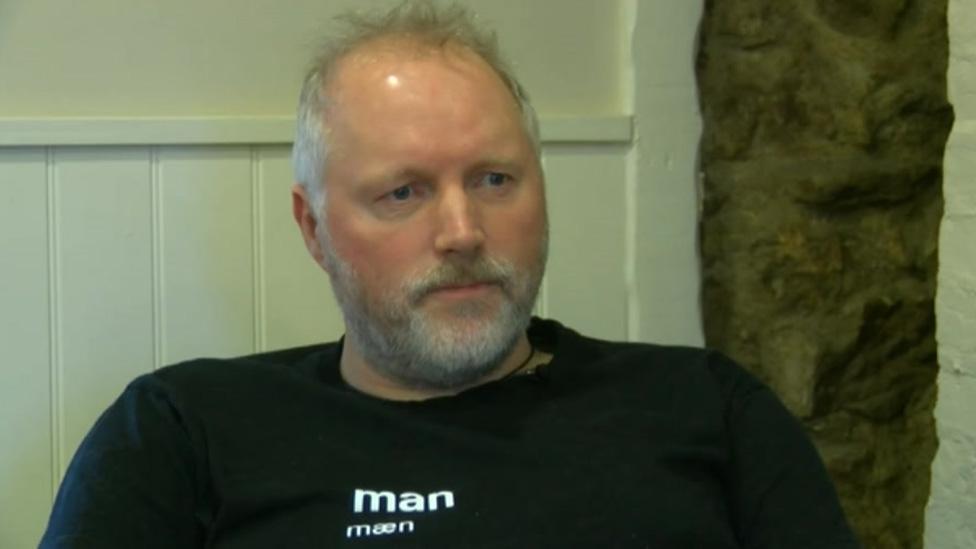Harry Miller: Legal victory after alleged transphobic tweets
- Published
Harry Miller: Being offensive is not an offence says free speech advocate
An ex-police officer has won a legal challenge against a national policy for forces to record gender-critical views as non-crime "hate incidents".
Humberside Police visited Harry Miller in January 2020 after a complaint over alleged transphobic tweets he made.
It was recorded on a national database as a non-crime hate incident.
But the Court of Appeal ruled on Monday the guidance was wrongly used and it had a "chilling effect" on Mr Miller's freedom of speech.
Speaking outside court, Mr Miller, from Lincolnshire, said being offensive was "one of the cornerstones of freedom".
"Being offensive is not, cannot and should not be an offence," he said.
"Only when speech turns to malicious communication or targeted harassment against an individual should it be a problem."
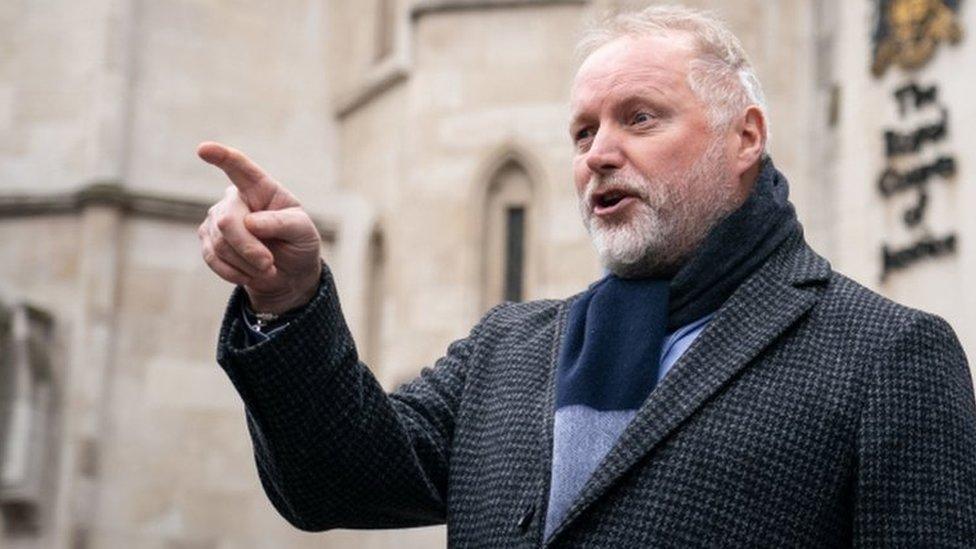
Mr Miller posted a number of tweets between November 2018 and January 2019 about transgender issues as part of a debate
A hate incident is "any non-crime incident which is perceived, by the victim or any other person, to be motivated by a hostility or prejudice", according to the College of Policing's guidance on hate crimes.
The Court of Appeal said national rules set by the College of Policing had placed too much emphasis on the perception of transphobic hostility, despite no evidence recorded by police.
Dame Victoria Sharp, one of England's most senior judges, said: "The net for 'non-crime hate speech' is an exceptionally wide one which is designed to capture speech which is perceived to be motivated by hostility... regardless of whether there is evidence that the speech is motivated by such hostility.
"The volume of non-crime hate speech is enormous and the police do not have the resources or the capacity to investigate all the complaints that are made.
"There is nothing in the guidance about excluding irrational complaints, including those where there is no evidence of hostility and little, if anything, to address the chilling effect which this may have on the legitimate exercise of freedom of expression."
Mr Miller challenged Humberside Police's actions at the High Court, which ruled in February 2020 that the force's response was unlawful and a "disproportionate interference" with Mr Miller's right to freedom of expression.


Today's ruling backs Harry Miller's legal right to speak his mind and potentially cause offence - a freedom that he says is fundamental in the battle of ideas in a democratic society.
His victory is a headache for the College of Policing, which now has to come up with new "safeguards" to ensure that any future recording of non-crime hate incidents does not disproportionately interfere with the legal right to speak one's mind.
That means rethinking guidance that dates back to the fallout from the 1993 racist murder of Stephen Lawrence.
Mr Miller says it was obvious back then what the police should have been recording: genuinely hateful gestures that were a prelude to awful crimes. He urges them today to remember that lesson and to focus on rooting out hate speech - rather than taking it upon themselves to police provocative thought and debate.

However, an additional challenge to the lawfulness of the College of Policing's guidance was dismissed, with the High Court finding that it "serves legitimate purposes and is not disproportionate".
Mr Miller's lawyers then took the case to the Court of Appeal saying the guidance unlawfully "violates the right to freedom of expression". The College of Policing said any interference with freedom of expression was "proportionate to the legitimate aims pursued by the guidance".
The court heard the guidance had been revised with updates including "a strong warning against police taking a disproportionate response to reports of a non-crime hate incident".
However, Dame Victoria added: "In my opinion [the revisions] do not go very far or not nearly far enough to address the chilling effect of perception-based recording more generally."
Mr Miller posted a number of tweets between November 2018 and January 2019 about transgender issues as part of the debate about reforming the Gender Recognition Act 2004.
In one tweet Mr Miller wrote: "I was assigned mammal at birth, but my orientation is fish. Don't mis-species me."
This tweet was among several others which were reported to Humberside Police as being allegedly transphobic and Mr Miller was visited by officers at his workplace.
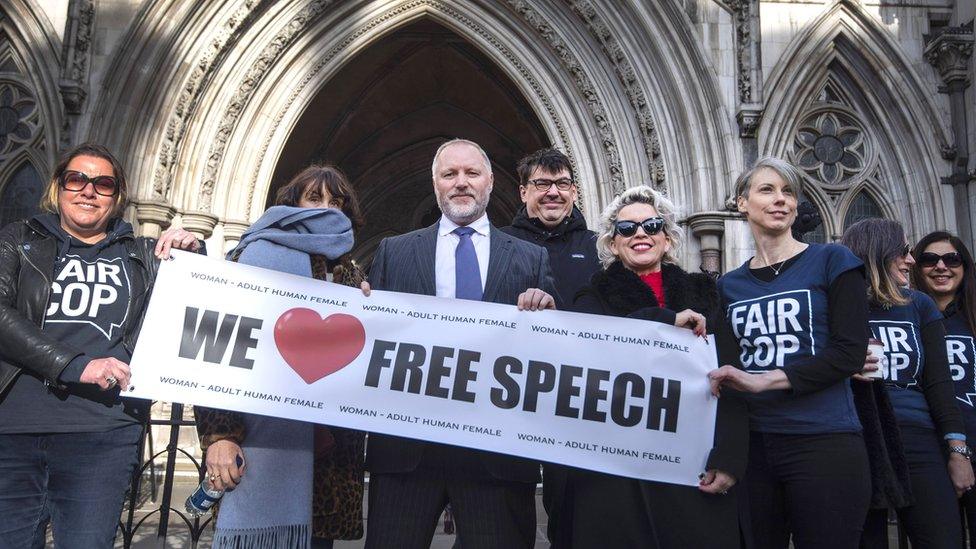
Mr Miller argued the guidance "violated the right to freedom of expression"
After Monday's Court of Appeal ruling, Assistant Chief Constable Iain Raphael, from College of Policing, said: "The balance we have always aimed to strike is between the need to protect vulnerable people and communities from harm with the need to facilitate and protect freedom of speech.
"The court has found we need to make safeguards in our guidance more explicit to help police officers proportionately enforce the law.
"We will listen to, reflect on, and review this judgement carefully and make any changes that are necessary."
Humberside Police said it would always follow the College of Policing guidance.

Follow BBC East Yorkshire and Lincolnshire on Facebook, external, Twitter, external, and Instagram, external. Send your story ideas to yorkslincs.news@bbc.co.uk, external.
- Published14 February 2020
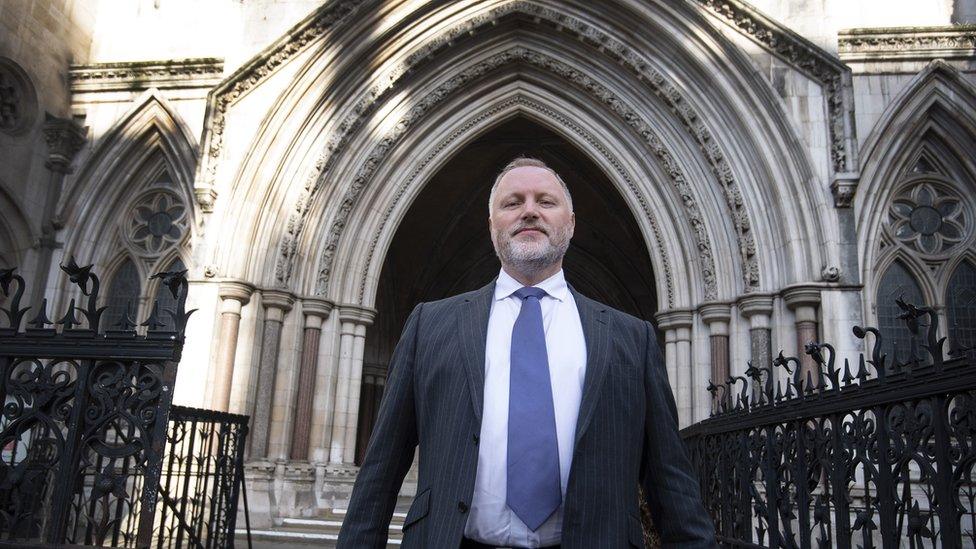
- Published20 November 2019

- Published6 August 2019
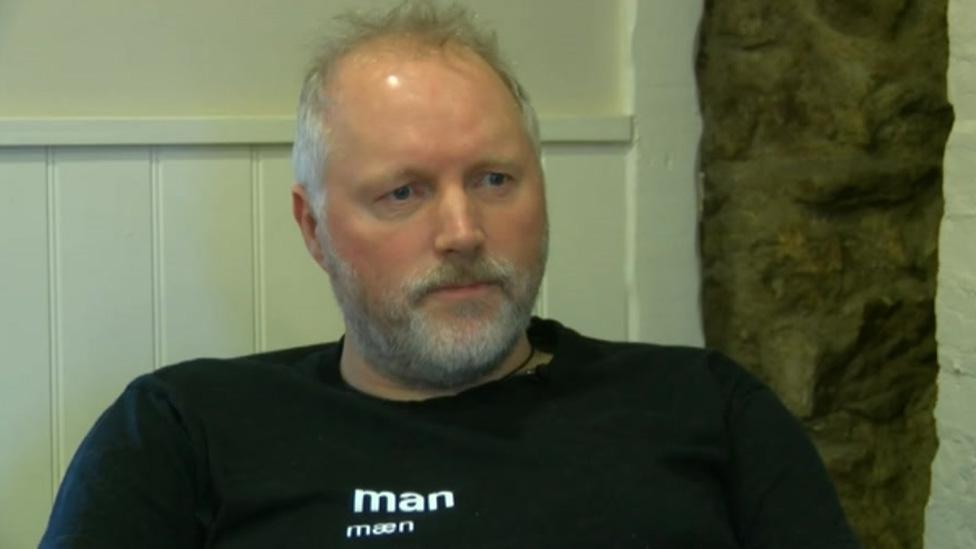
- Published25 January 2019
